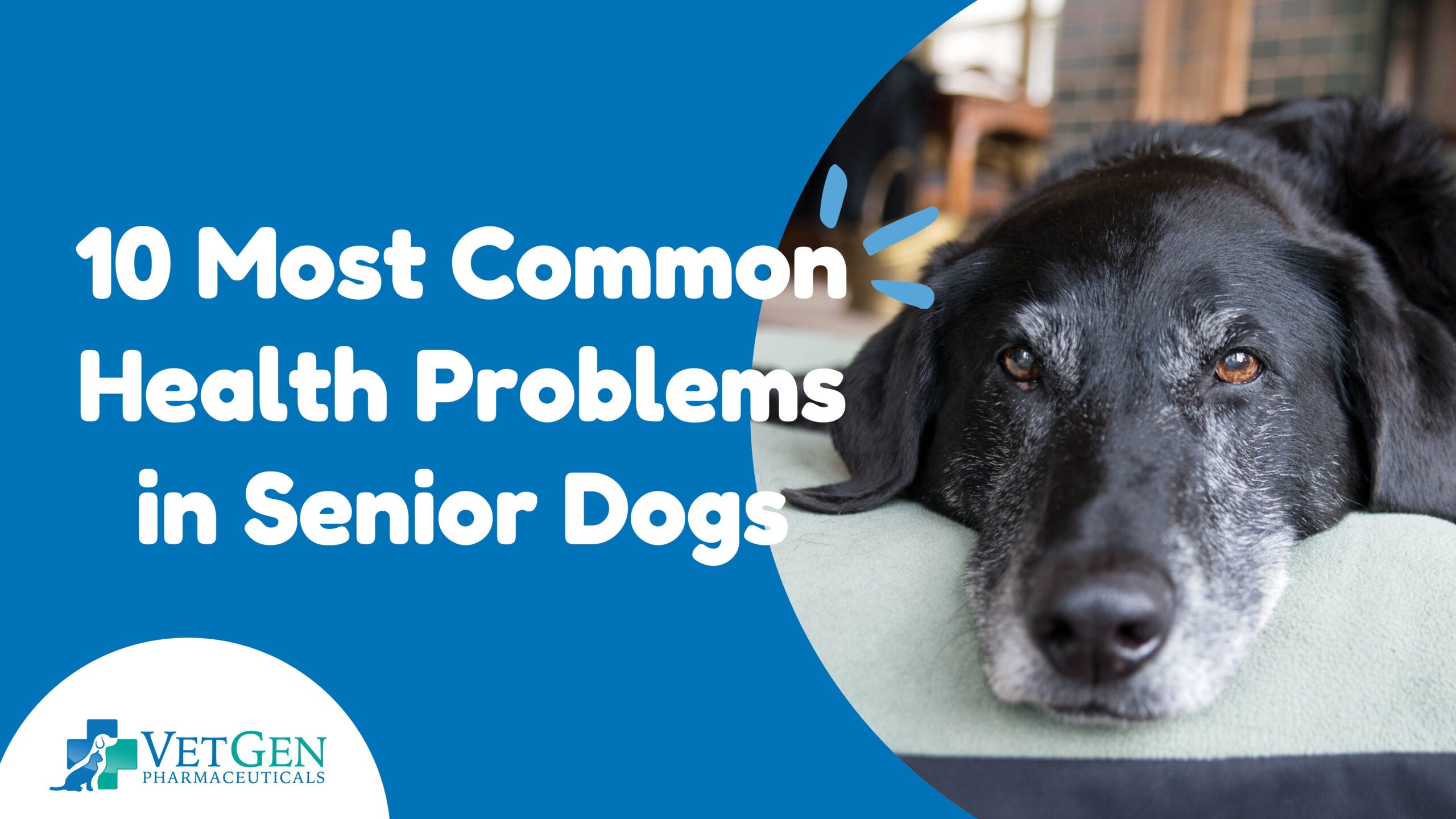As loving dog-parents, we all wish we could age gracefully with our furry companions.
This is why we always see the young playful pup, no matter how big they grow. Sadly, time flies so fast, and we cannot stop it or deny reality.
As your dog ages, you have to watch out for the most common health problems in senior dogs.
Anticipating and managing these issues before they become problematic can help protect and improve your dog’s life.
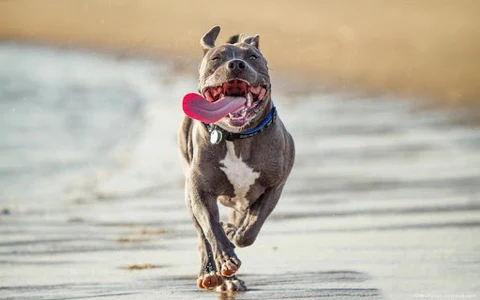
Like humans, the risk of developing common health problems in dogs increases with age.
But when is a dog considered senior? Most dogs become seniors when they reach 7 years of age.
Larger breeds like Great Danes age quicker and reach the senior bracket at 6 years, while smaller Chihuahuas may take 8-9 years.
Apart from genetics, other factors like lifestyle, nutrition, and environmental conditions can affect aging.
Healthy dog foods and regular exercises can delay age-related health issues. Senior dogs that receive proper care can live happy, healthy lives.
Here are the 10 Most Common Health Problems in Senior Dogs:
Hearing and Vision Loss
It is common for older dogs to lose their hearing and vision gradually due to tissue degeneration.
Nerve degeneration in senior dogs can lead to varying degrees of deafness. Some dog breeds are prone to developing cataracts, which is defined by cloudy vision.
Fortunately, cataracts can be surgically removed to restore your pal’s vision.
Small dogs with bulging eyes like Shih Tzu and Pugs are prone to dry eye (keratoconjunctivitis sicca) when they get older.
Loss of vision is not particularly worrying because dogs rely more on their sense of smell than eyesight for navigation.
Most dogs don’t have any trouble exploring their environment after losing their eyesight.
Even though age-related deafness is irreversible, cleaning and proper ear care can slow down the progression of hearing loss.
You can reduce the pace of your walks and use a leash when venturing the outdoors.

Heart Problems
Heart disease is also common in older dogs, including congestive heart failure and chronic valvular heart disease.
Congestive heart failure occurs due to a decline in the heart’s efficiency in pumping blood.
Chronic valvular heart disease occurs when thickening or other irregularities of the valves results in abnormal blood flow within the heart chambers.
Signs of possible heart disease in dogs include difficulty breathing, exercise intolerance, coughing, loss of consciousness, and unexplained vomiting.
If your dog shows these signs, visit your vet for a checkup right away.
Early detection and therapy can slow the progression of heart disease.
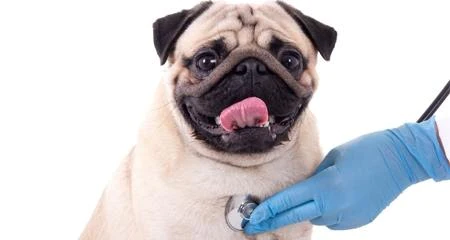
Joint Problems
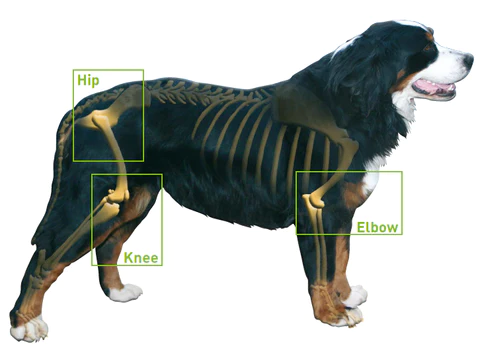
Just like people, many senior dogs develop joint problems like arthritis and canine hip dysplasia.
Even though canine hip dysplasia can occur at any age, it is more pronounced in older dogs.
But the most common joint issue in senior dogs is osteoarthritis, which is a degenerative disease that affects the weight-bearing joints like hips, knees, elbows, and shoulders.
Canine arthritis leads to loss of lubrication in the joints and bone-to-bone grinding, which is as painful as it sounds.
You can use vitamin supplements for dogs to relieve joint pain.
The best joint supplements for dogs contain special formulations of vitamins, including Glucosamine, MSM, chondroitin, and Manganese. It can reduce joint pain and improve your dog’s mobility.
Dementia
Dogs can exhibit developmental changes as they age.
Signs of dementia and cognitive dysfunction in dogs are very similar to Alzheimer’s disease and dementia in humans.
It includes disorientation, whining or barking for no reason, confusion or being lost in a familiar environment, and bathroom accidents.
If you notice these signs and behaviors in your dog, visit a vet to rule out other conditions with similar symptoms.
Skin Issues
Skin issues like lumps and bumps, hot spots, and warts are all common health problems in senior dogs.
Hot spots on dogs are usually self-inflicted after excessive licking and scratching due to itchy skin.
Itchy skin may indicate an underlying issue like a parasitic infestation.
Lumps and bumps are more worrying than hot spots because they may indicate serious health issues like cancer.
Fortunately, most lumps and bumps in senior dogs are usually benign warts or moles. Fatty tumors can also lead to lumps and bumps.
Vitamins for dogs’ skin can protect your dog’s healthy skin and also promote quick recovery when combined with a healthy diet.
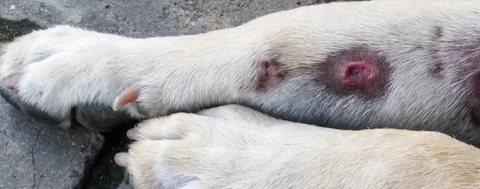
Cancer
Although dogs of all ages can get cancer, it is more common in older dogs.
Some lumps and bumps on the skin can be cancerous, but most are usually benign growths.
The biggest challenge in protecting your dog is the wide range of symptoms and unknown causes.
This is why regular checkups and screenings are highly recommended.
Don’t disregard any strange lumps.
You should also address other common issues like obesity that increase the risk of cancer.
Obesity
According to statistics, 50% of dogs in the US are either overweight or obese.
Obesity increases the risks of developing serious health issues like diabetes, heart disease, and cancer.
Excess strain and stress on your dog’s legs, shoulders, and hips can lead to joint pain or worsen existing joint problems.
Fortunately, you can manage your dog’s weight with proper nutrition and regular exercises.
You can include healthy human foods like carrots, apples, green peas, and yogurt with low calories in your dog’s weight-loss diet.

Coat Issues
Coat issues in senior dogs include excessive shedding, thinning, dulling, and hair loss.
Excessive shedding affects breeds of all sizes, but it is more visible on dogs with longer hair.
You can stop dog shedding using simple measures like grooming, a healthy diet, and so on.
Some coat issues like hair loss may indicate an underlying skin condition.
Thinning and dull coats are usually attributed to nutritional deficiencies.
A healthy, nutrient-rich diet can help address coat issues. You can restore your dog’s shiny coat quicker using supplements for skin and coat.

Kidney Problems
Kidney problems are common among elderly dogs.
There are different types of kidney problems that can affect older dogs, including chronic kidney (renal) disease.
Chronic kidney disease begins as renal insufficiency and gradually progresses to full renal failure.
There is no cure for chronic kidney failure, but it can be managed to prolong and improve your dog’s life.
Early detection is important.
You can visit your vet for a urinalysis to determine the health of your dog’s kidney.
Gastrointestinal Issues and Incontinence
The weakening of muscles, nerves, and organs with age can lead to incontinence.
Other health issues like dementia and urinary tract infections can also cause incontinence.
For gastrointestinal (GI) issues, the main culprit is an underlying health problem like kidney disease.
While both GI and incontinence are common in aging dogs, it is best to visit your vet to rule out other issues.
Conclusion
At VetGen Pharmaceuticals, we are dedicated and focused on enhancing the quality of your dog’s life to ensure your dog maintains an active lifestyle so you can enjoy each other’s company for many years to come! To this end, we offer the best dog supplements for dry skin and natural joint supplements for dogs. Each product offered by VetGen Pharmaceuticals is made from the best and safest ingredients.

